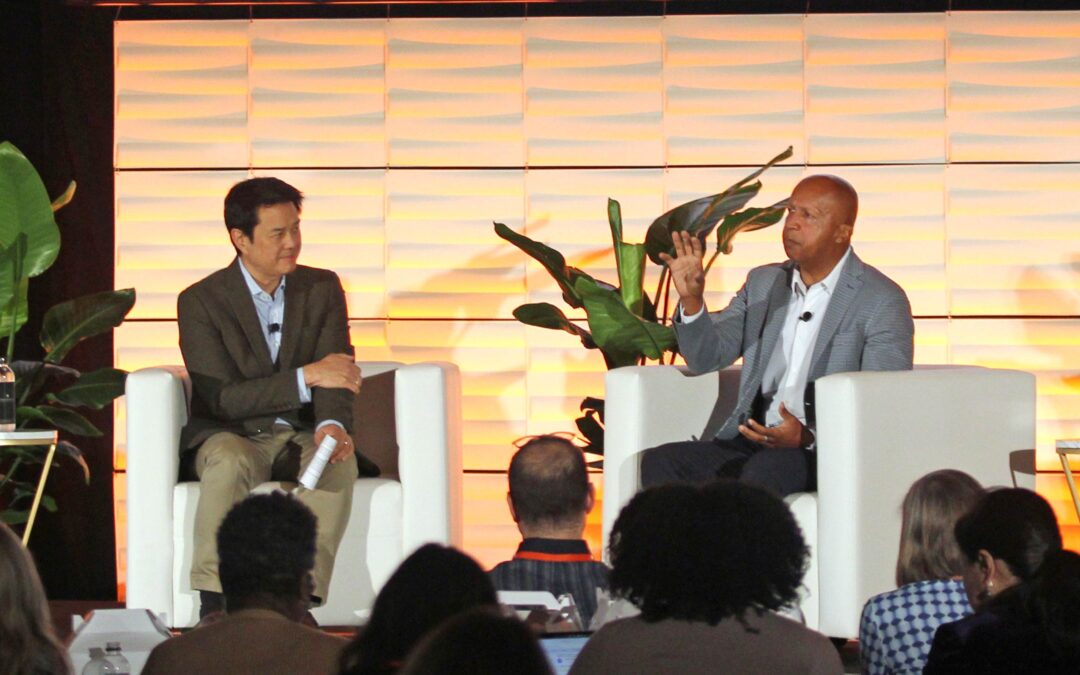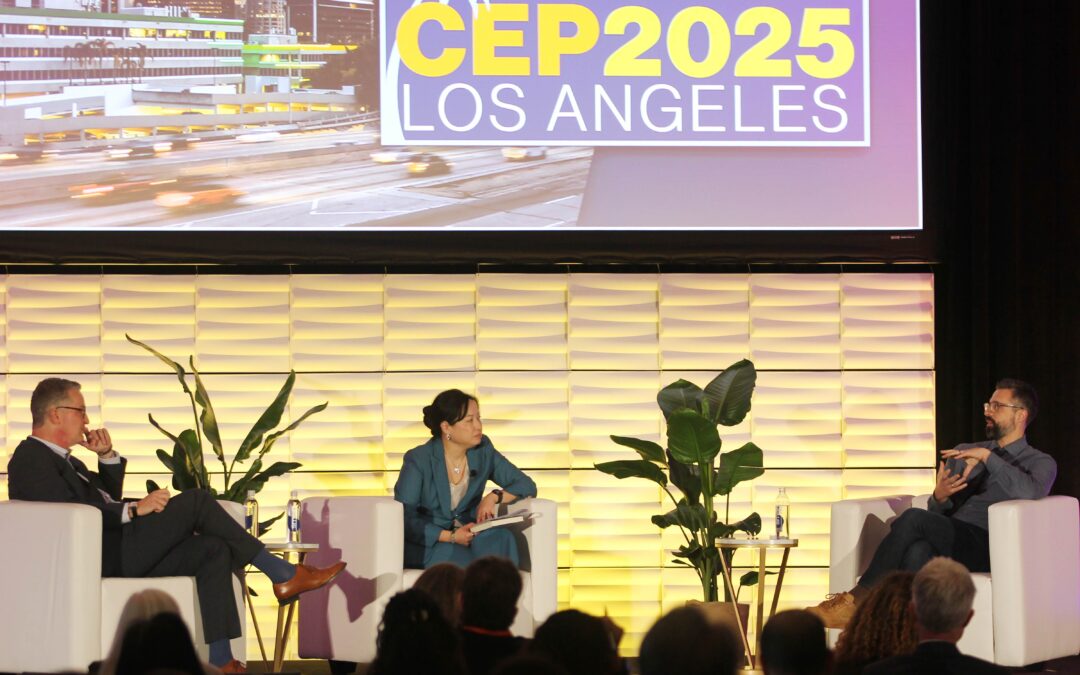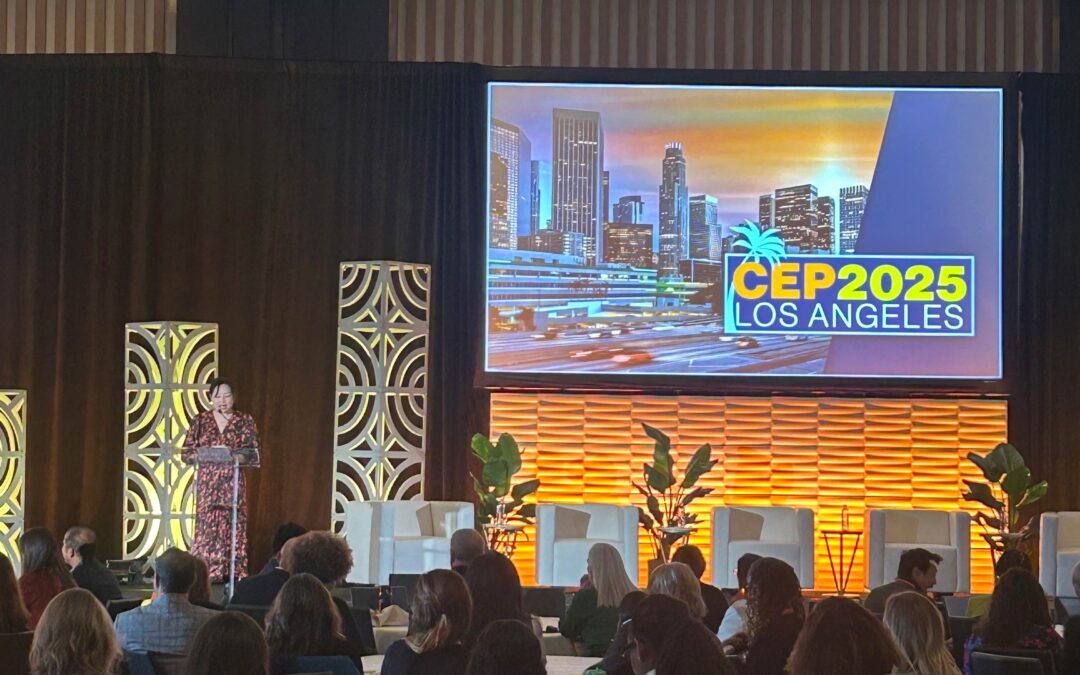CEP2023 attendees brought their Halloween spirit to day two of the CEP conference, and we hit the ground running with a packed morning as author and cofounder of Candid Jacob Harold took the main stage to deliver a message of strategic abundance for philanthropy.
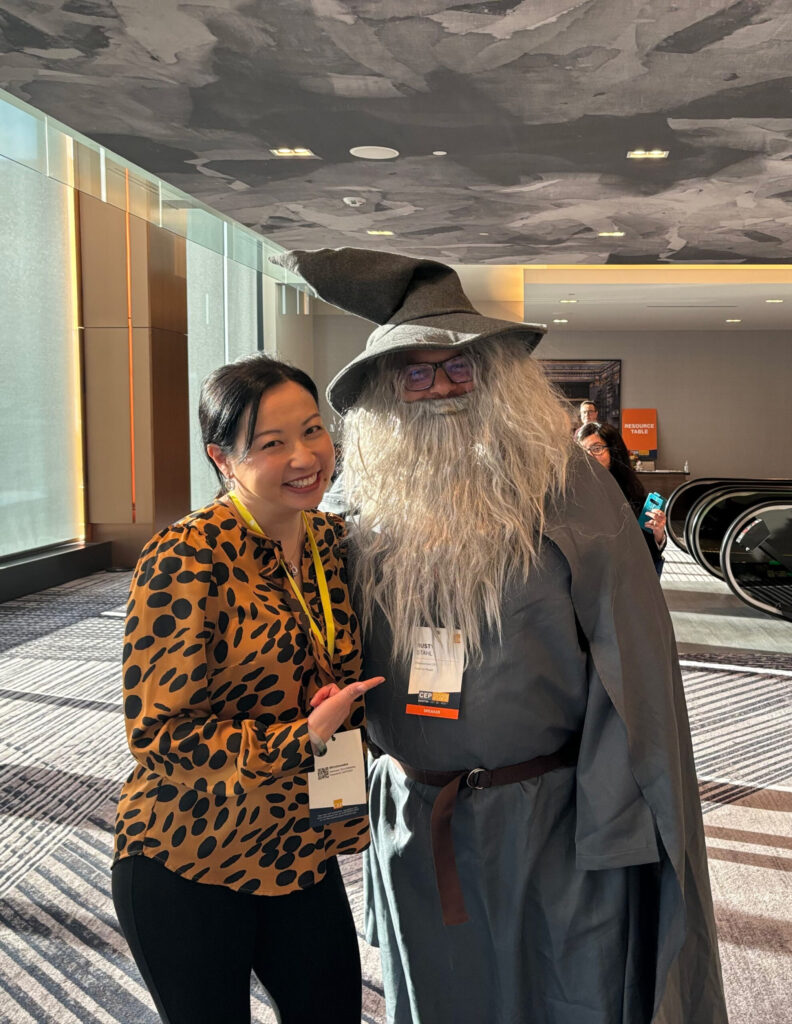
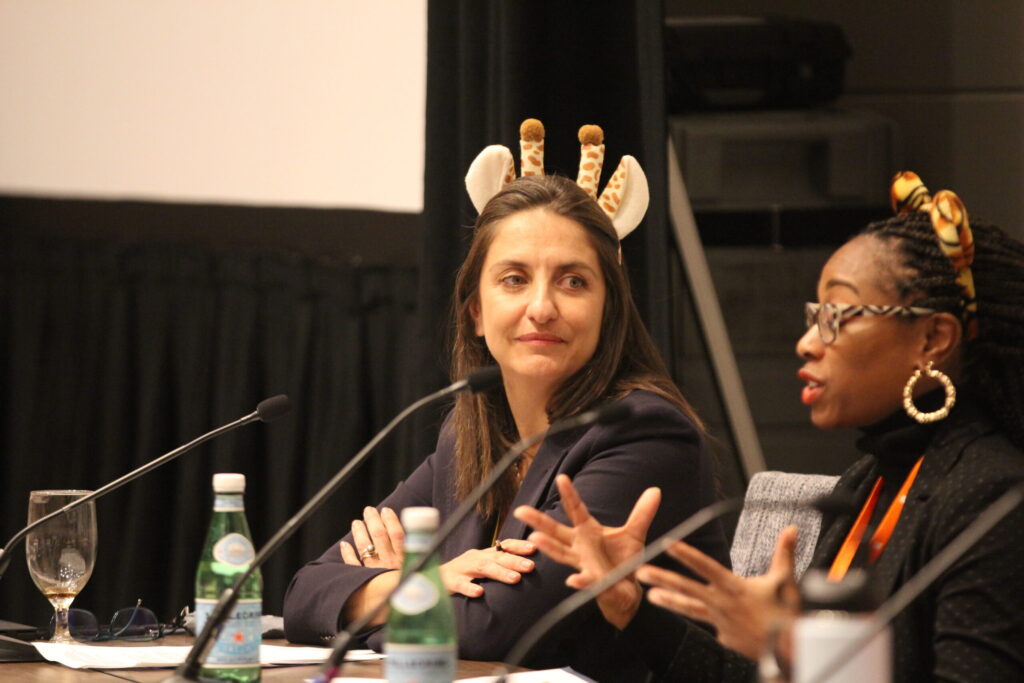

“There are no easy answers. Instead, there are tools.”
After an introduction from Jen Wilka, executive director of YouthTruth, Harold offered an overview of nine of the tools at philanthropy’s disposal to create social impact: storytelling, behavioral economics, design thinking, community organizing, mathematical modeling, game theory, institutions, complex systems, and markets. While offering examples and applications of each of the tools, he also emphasized that none of us can be expert in all, but rather that having a broad overview of the set of tools, anchored by clear purpose, enables strategic abundance.
Getting the audience involved, he asked attendees to consider which of the tools described comes easily to them, and which feel hard or uncomfortable, and invited each table to engage in a small group discussion of one issue, viewing it through the lens of each of the different tools.
He closed with a call to take inspiration from a murmuration of starlings, a beautiful example of many individual parts moving as one, resulting in a whole that is greater than the sum of its parts.
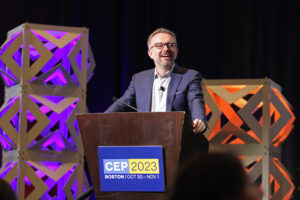
Attendees then found their way to one of eight breakouts to dig deeper into the practices of effective grantmaking in sessions on topics like how philanthropy can strengthen the local news scene, effectively supporting LGBTQ+ communities right now, and the question of whether there exists a tension between trust-based philanthropy and rigorous evaluation, among many others.

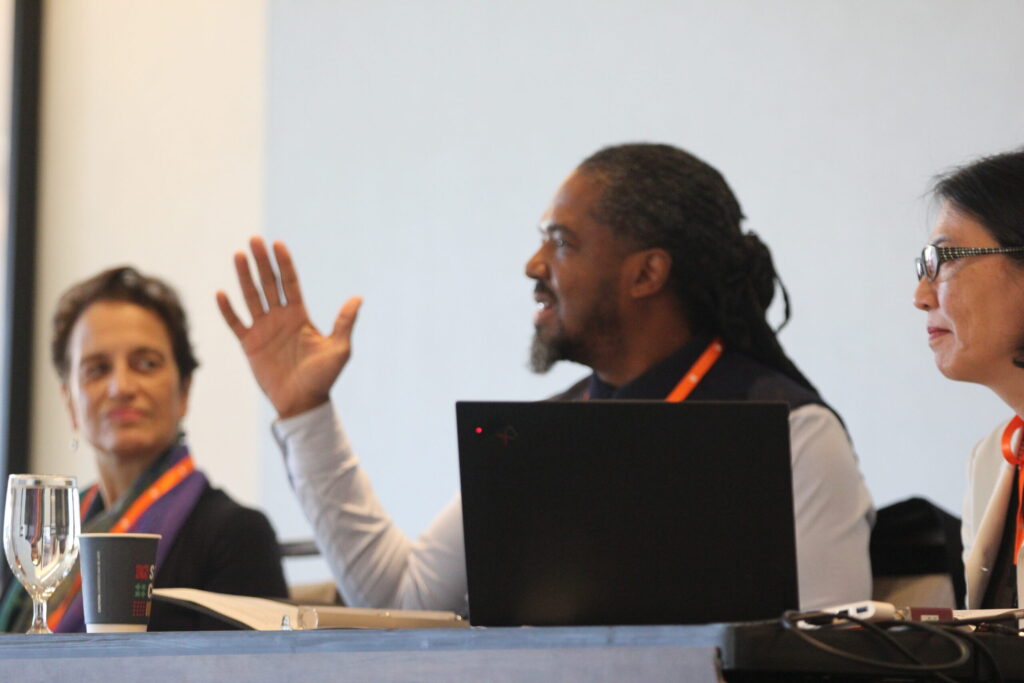
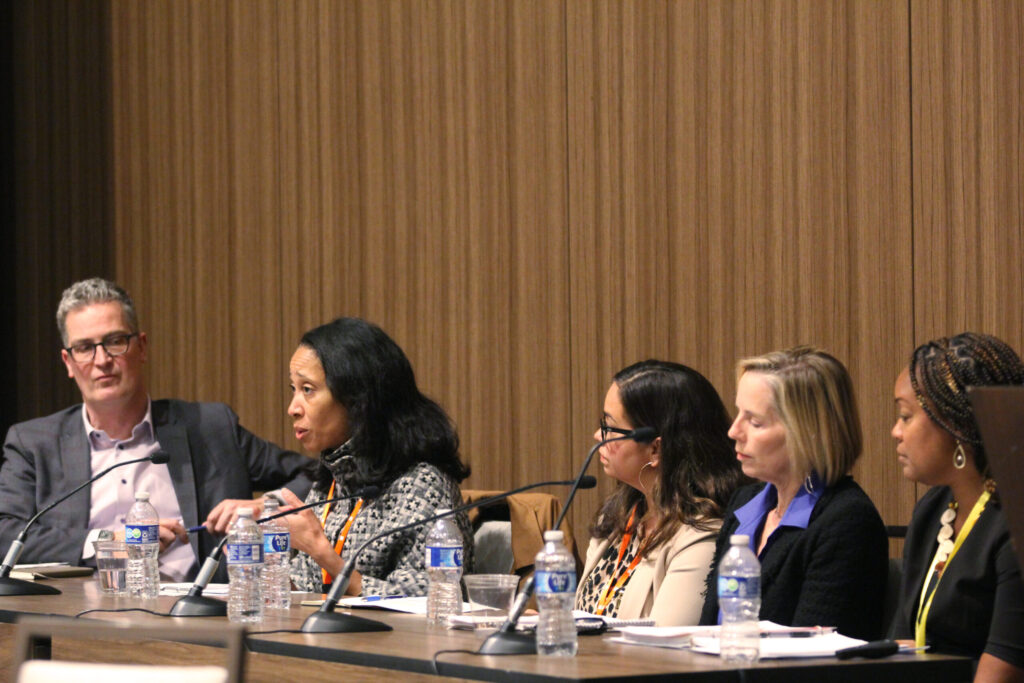


Democracy Renovation, Revival, and Reinvention
After lunch, we eagerly reconvened in the ballroom to hear from Harvard Professor, Director of the Edmond and Lily Safra Center for Ethics, and democracy expert Danielle Allen. By way of introduction, Allen shared her own lineage of democracy defenders before setting the stage for the discussion to follow by calling the moment we are currently living in “the great pulling apart.”
Offering insight from her deep expertise on the subject, Allen suggested concrete steps to both protect democracy, as a starting point, and then to renovate our democracy to strengthen it, including concrete suggestion such as a redesign of institutions to change incentive structures, ending party primaries, introducing citizen assembly processes, and more. Echoing Harold, she noted that while we don’t all need to be experts in each of these pathways, she called on funders to have “a way of thinking about your investments that is specifically aligned with a strategy for securing a healthy democracy in the 21st century.”
PACE CEO Kristen Cambell, Crystal Hayling, executive director of the Libra Foundation, Sarah Cross, vice president of free speech and peace at Stand Together, and Rockefeller Brothers Fund President and CEO Stephen Heintz then joined Allen on stage to continue the conversation.
The panel, moderated by Cambell, engaged in a lively and informative discussion about both the imperative of building what Allen called a “supermajority for democracy” and the how of engaging in that work, touching, too, on what philanthropy should not do as they pursue democracy-strengthening work.
Each of the panelists offered their own view of the framing of democracy work in philanthropy. Hayling noted that her focus is on revival alongside renovation, centering community organizing and on-the-ground work, while Cross offered an analogy to an inherited fixer-upper house — beautiful, worth preserving, and in need of “a ton of work.” Heintz offered a different vision: a need for a “reinvention” of democracy for the vast, multicultural, and multiracial country that is the U.S. today.
The panel also engaged in a back and forth about the role of inclusion in democracy work, discussing where to “draw a bright line,” balancing the need for a broad coalition with the understanding that not everyone can join us on the side of the line supporting democracy.


Carrying the fiery discussion from the main stage with them, attendees went energized into another set of breakouts, with topics including how to bridge divides (a natural follow-on), building robust feedback loops in evaluation, confronting legacies of hurt in philanthropy, and how philanthropy can better support Native communities, to name just a few.
“If we don’t innovate, we will lose our traditions.”
Day two of CEP’s gathering closed with a riveting and inspirational performance from internationally acclaimed musician and composer Sona Jobarteh. Jobarteh, the first female Kora virtuoso, carries on the West African tradition of Griot, in which mastery of the Kora is passed generation to generation. She is not only the first female professional player of the Kora, but also a passionate activist and educator.
Before her performance, Jobarteh addressed the audience, speaking to the power of music to convey message and meaning, the imperative of innovating within tradition, the potential of education reform within her own country and the continent of Africa more broadly, and her vision for bringing these values together in her pioneering institution, the Gambia Academy.
Jobarteh spoke passionately about keeping traditions alive by pushing them forward into new generations with innovation. She also shared her experience as a student in London, discovering resources on her own family history, and noting the tension of holding her own knowledge and family heritage and feeling herself and her family an object of study. “Is it doing something that makes you an expert or is it writing about something that makes you an expert?” she asked.
She concluded by sharing her ambitions for the Gambia Academy and the system change she hopes to instigate through education reform and the creation of a curriculum that can be replicated across the continent of Africa. “We must plant those seeds and be prepared for that long goal.”
Joined by her band, she began the musical portion of the evening with a moving song written for her grandmother, who, she said, had long dreamed that Jobarteh would become a professional Kora player, but did not live to see her this dream realized.
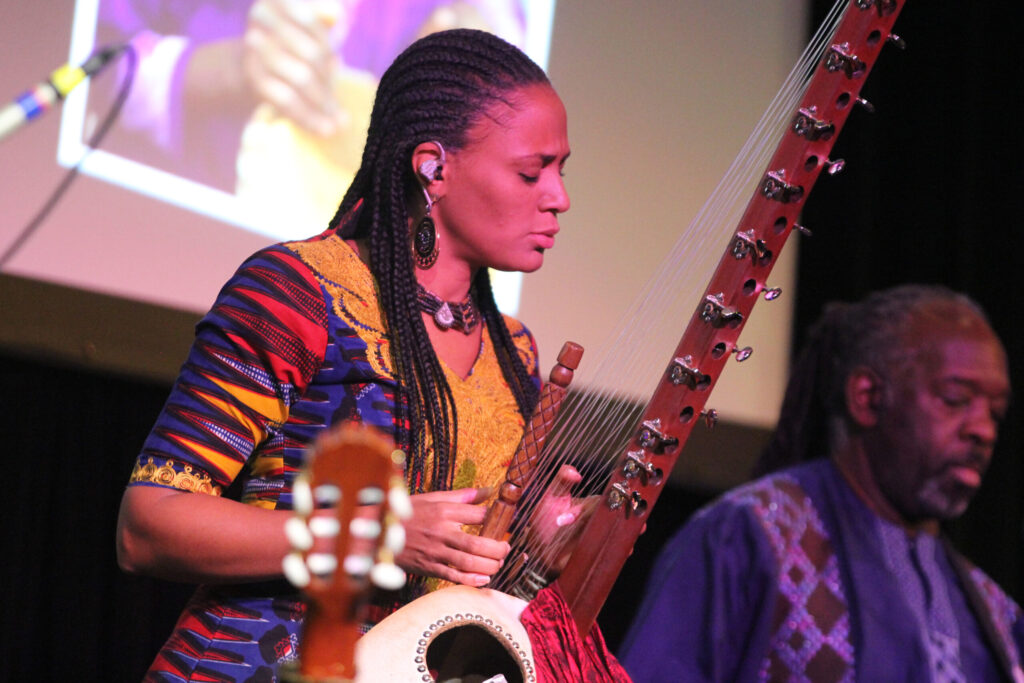


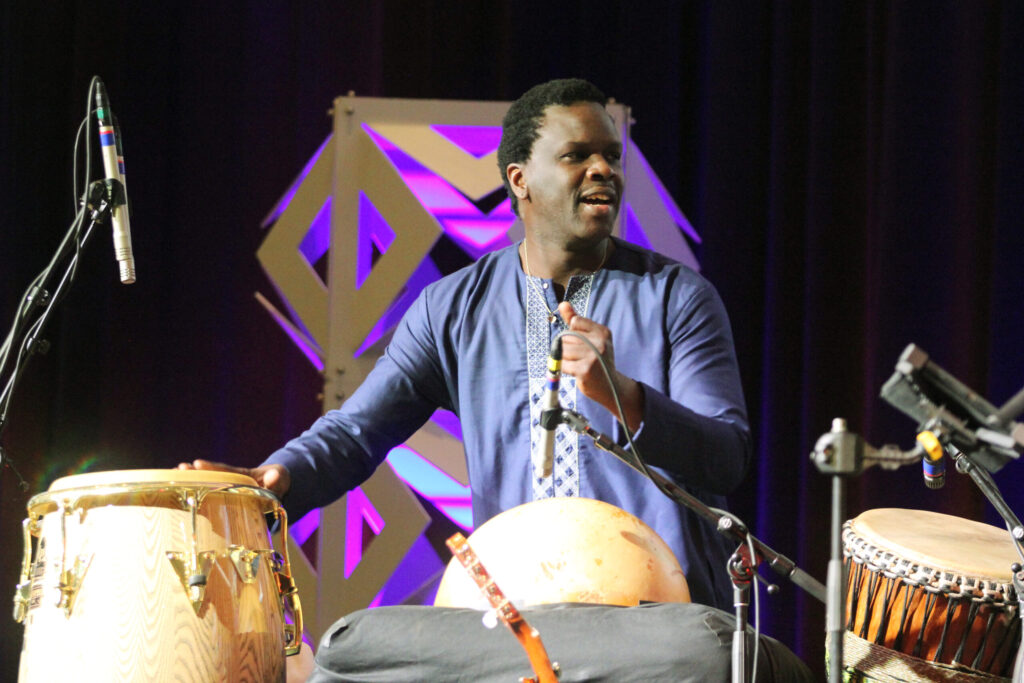

We look forward to continuing the conversation tomorrow!
Chloe Heskett is editor and writer at CEP. Find her on LinkedIn.
